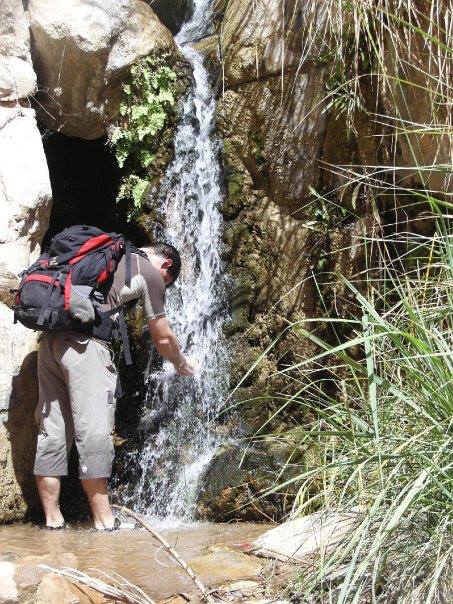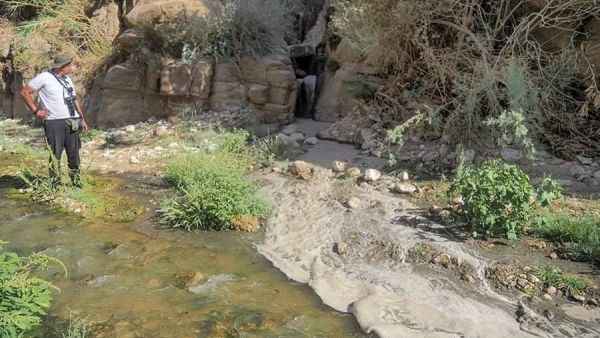Just when Jordan is working on boosting its internal tourism to its different historic, natural and eco friendly sites after an 80 days complete lockdown, hikers to one of the country's most beautiful Wadi's in the South; Karak Valley torrent, were surprised with a harsh catastrophe affecting and killing the whole biosphere in the water trail. A sewage water pipe has broke and its pollutants were killing all life in the valley!
"The rarest environments in Jordan are the fresh rivers and waterways. There are very few freshwater pathways in the country, perhaps the most important of which are the Jordan River and the Zarqa Stream, both of which are so polluted that they may no longer accept rehabilitation. But we have very beautiful natural waterways, including the Karak Valley torrent." Environment specialist Batir Wardam explained.
Unfortunately, the water stream suffered an environmental catastrophe that no official had noticed. Amateur hikers, who toured the valley on Friday discovered and documented the scene in pictures and video.
"Translation: Massacre of Fish and the Environment;
Last Friday, 6/26/2020, during our water walk in Wadi Karak with a group of hiking and climbing enthusiasts, we were surprised at the start of the path with polluted dark water and dead fish on both sides of the trail. But we thought the reason was the presence of a large amount of algae in the water. We reached the wonderful waterfall, which is considered one of the most beautiful waterfalls in Jordan, and were still confused about the dead fish. On the way back, the great catastrophe occurred, as we were surprised by the flow of sewage into the tourist waterway and the presence of large numbers of pedestrians in the valley. And we followed unpleasant path inside the highly polluted waterway with emissions of foul odors and debris for about an hour and a half compelling to the narrow path, and here we discovered the secret of the death of hundreds of fish and the surrounding environment.
Is it conceivable that a country, which considers itself a tourist destination and is trying to encourage domestic tourism to accept such a scene? Is it possible that a wonderful path like the path of Karak, which ends with the most beautiful landscapes in the region, to be violated in such a heinous and irresponsible manner? A wonderful trip turned into a trip to hell. The question here: Who is responsible for this calamity, which is repeated apparently without control? This wastewater comes from a refining center ... Who is responsible? Why such harmful behaviors to the environment and individuals? Where does this wastewater go? Of course, to the Dead Sea!! This is willful killing of the environment and of individuals. I call upon the responsible parties to open an investigation of this serious matter, to take all necessary measures, and not to compromise. The water valleys in Jordan are considered among the riches we are proud of. Preserve us something we can be proud of !! Prime Ministry of Jordan Prime Minister - Jordan @ Ministry of Environment @ Ministry of Water and Irrigation @ Jordanian Ministry of Tourism and Antiquities @ Jordanian Society for Environmental Protection @ Jordanian Ministry of Agriculture @ Greater Karak Municipality @ Jordanian Parliament @ Jordan Valley Authority."
Jordanian environmental activists explained that the flow of wastewater with its organic pollutants and other toxic substances is completely destroying the entire aquatic environment and reducing the quantities of dissolved oxygen causing the death of organisms that live in the water path. they called on the authorities for immediate action to prevent any pollution from sanitation station whose pipe is causing all the damage.

People on social media expressed sadness over the pictures of pollution and dead fish, and called for turning the Wadi it into 'a protected area or a special biological diversity area managed by the Ministry of Environment and through local partners such as NGOs in Karak or the Royal Society for the Conservation of Nature or other non-governmental institutions.'








